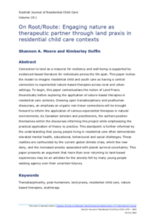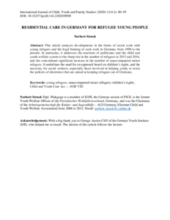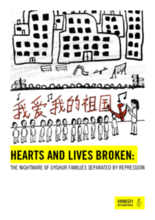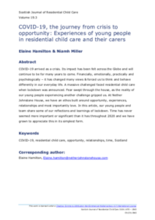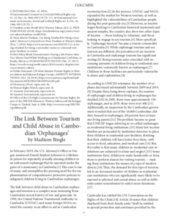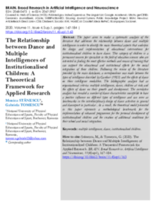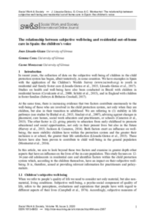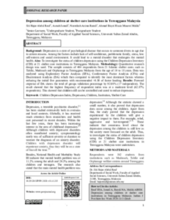Displaying 341 - 350 of 1510
This paper invites the reader to imagine residential child and youth care as having a central connection to experiential nature-based therapies across rural and urban settings.
This article analyzes developments in the forms of social work with young refugees and the legal framing of such work in Germany from 1990 to the present.
This report from Amnesty International presents testimonies from six parents residing in Australia, Canada, Italy, the Netherlands and Turkey who have been separated from their children, who are "trapped" in China.
Country fact sheet for the UN Committee on the Rights of the Child; Philippines.
In this article, the young people and team at the Nether Johnstone House in Scotland share some of their reflections and learnings of lockdown.
This column from Volume 23 of the American University Washington College of Law Human Rights Brief explores the links between child abuse in Cambodian orphanages and tourism.
The paper aims to make a systematic analysis of the literature that addresses the relationship between dance and multiple intelligences in order to identify the main theoretical aspects that underpin the design and implementation of educational interventions for institutionalised children to learn dance.
In this article, the authors aim to examine in greater depth aspects that have an influence on the lives of the in-care population.
The aim of this study was to investigate the status of children depression using the Children Depression Inventory (CDI) at 21 shelter care institutions in Terengganu, Malaysia.
The following evaluation looks at a dialectical behavioural therapy (DBT) skills group implemented with young females in a Scottish residential service.

